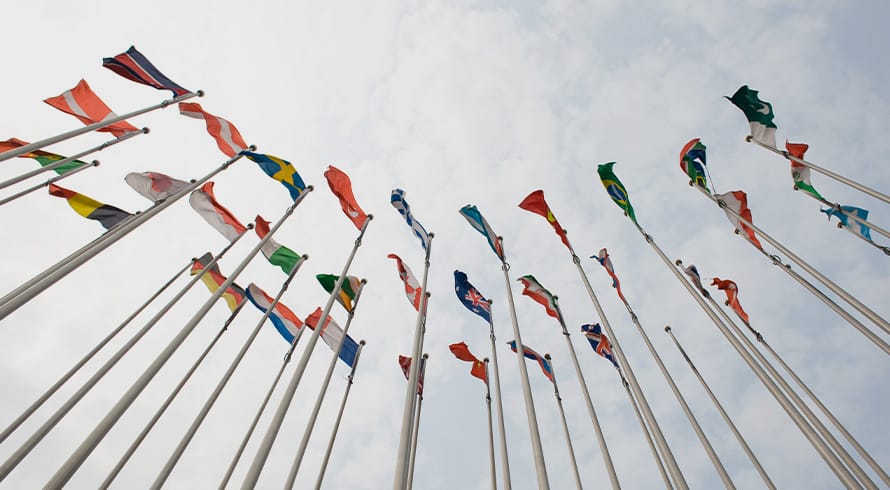Many hands make ‘light’ work: Draft block exemptions for energy suppliers and users published
At a glance
- The Department of Trade, Industry, and Competition (DTIC) has published draft block exemption regulations for energy suppliers and users in response to the national energy crisis in South Africa.
- The exemptions allow for collaborative agreements or practices among users and suppliers to address electricity supply constraints, reduce energy costs, promote optimal energy use, and provide backup supply. They also allow joint participation in regulatory matters.
- Approval must be obtained from the Competition Commission for suppliers, while users need to notify the Commission and the DTIC. The exemptions have certain limitations and requirements, and their effectiveness and adoption remain to be seen.
The provisions of the Competition Act 89 of 1998 (Competition Act) outlaw any agreements between competitors that might fix a purchase or selling price, or trading terms. For competitors to agree on the allocation of suppliers, customers, products or geographic areas of service is also prohibited. The prohibitions on such agreements are “per se” – in other words, even if intended to achieve a laudable outcome, the contravention is inherent in the agreement. The exemptions apparently recognise the desperate times South Africa is facing, and thus make allowances for some co-operation between users or suppliers to act jointly to ensure efficient energy procurement, use and supply.
What is exempted?
The exemptions cover certain categories of collaborative agreements or practices aimed at responding to electricity supply constraints from the national grid. The exemptions only apply where the agreements have the “sole purpose” of securing backup supply, reducing energy costs, or promoting optimal use and supply of energy. Users and suppliers are also allowed to jointly weigh in on regulatory matters. The following categories of agreements or practices are exempted:
The exemptions will not apply to any discussions or agreements on fixing the selling prices of goods or services to customers or consumers (for instance landlord users could not agree on a surcharge to levy on tenants for backup power and suppliers could not harmonise their pricing). Nor will the exemptions be applicable to any tenders for the supply or procurement of energy.
To avoid arrangements that only benefit large players, the exemptions provide that firms controlled by historically disadvantaged persons and small, medium and micro enterprises must be afforded an opportunity to opt-in to agreements or practices entered into in terms of the exemptions.
How is approval obtained?
Although the exemptions are intended to expedite measures to address the energy crisis, unfortunately, but hardly surprising coming from a state department, there is red tape to contend with.
Suppliers that wish to proceed in terms of the exemptions must first apply in writing to the Competition Commission (Commission) for approval of the agreement or practice. The Commission then has 30 days to grant or decline the application. Interestingly, users need not obtain the Commission’s prior approval, but must notify the Commission and the DTIC of the agreement or practice within 30 business days of “implementation” (which may be hard to pin down if an ongoing process is envisaged).
Suppliers and users must also retain minutes of meetings held and written records of any agreements or practices entered into in terms of these exemptions, since the Commission may requests these records at any time.
It remains to be seen whether users and suppliers will be willing to clear these hurdles, or prefer to go it alone or in a concerted manner that does not on the face of it fall foul of the Competition Act (not all competitor collaborations infringe the law and require exemption).
Conclusion
While these efforts reflect the fact that the energy crisis may require some creative problem solving from the private sector, it remains to be seen whether the exemptions will result in any electrifying impetus.
Once the exemptions come into effect, suppliers and users should still be alive to other anti-competitive conduct and will need to tread carefully, knowing that their interactions may be scrutinised. The exemptions will be lifted once the state of disaster ends, which raises the question of how parties can untangle themselves from an arrangement that suddenly becomes illegal.
Stakeholders and interested parties have until 30 March 2023 to submit comments in writing to the DTIC.

The information and material published on this website is provided for general purposes only and does not constitute legal advice. We make every effort to ensure that the content is updated regularly and to offer the most current and accurate information. Please consult one of our lawyers on any specific legal problem or matter. We accept no responsibility for any loss or damage, whether direct or consequential, which may arise from reliance on the information contained in these pages. Please refer to our full terms and conditions. Copyright © 2025 Cliffe Dekker Hofmeyr. All rights reserved. For permission to reproduce an article or publication, please contact us cliffedekkerhofmeyr@cdhlegal.com.
Subscribe
We support our clients’ strategic and operational needs by offering innovative, integrated and high quality thought leadership. To stay up to date on the latest legal developments that may potentially impact your business, subscribe to our alerts, seminar and webinar invitations.
Subscribe




